Political Philosophy and Power: Democracy in Malaysia
At times, it seems obvious that we’re all equals. But at other times it seems very obvious just how unequal we are.
Consider this – how should I put this delicately? – some people are really really stupid. Some people are really really ignorant and bigoted. You really want a system in which their votes count for the same as yours?
Shaun Tan
This speech was delivered at the Kuala Lumpur Bar Council on the 17th of July 2013.
In the synopsis to this talk I ask the question: Nowadays information on politics is everywhere, but where can wisdom be found?
So this is what it’s come to on a Wednesday afternoon at the Bar Council, huh? All of you here in this room, listening to a 25-year-old tell you about wisdom.
But what’s the difference between information and wisdom?
Well, what would happen if we were to stop watching and reading the news? What would happen if we were to retire into the jungle and live there as hermits for a year? At the end of that year, would we still know anything of value about politics, or would all our knowledge be obsolete? What if we did this for two years, five years, ten? At the end of that period, what knowledge would we have that’s still of value?
Political philosophy seeks to provide that knowledge. It provides timeless lessons on power detached from the frenzy of the 24-hour news cycle: lessons that retain their potency even as politicians come and go, and empires rise and fall.
The origin of Western philosophy is illustrated here, with Raphael’s famous painting of The School of Athens.
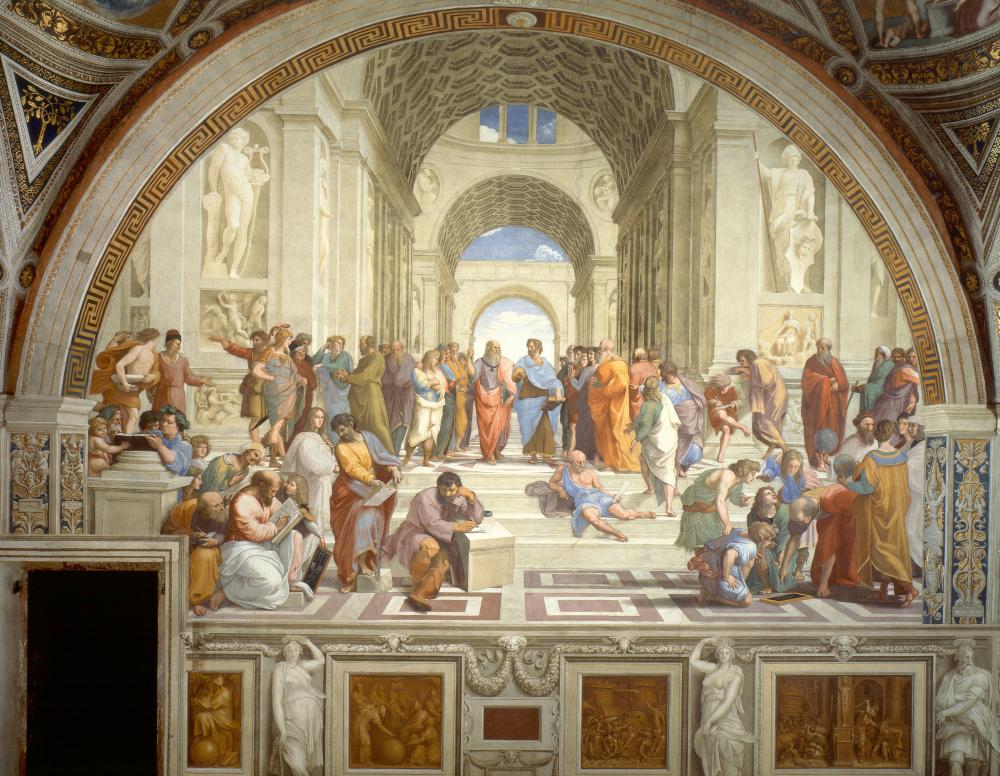
Raphael’s School of Athens
The central figures are Plato and his most famous student, Aristotle. These two men weren’t just the quintessential philosophers; they also sought to guide power. Plato was once an adviser at the court of King Dionysius of Syracuse, whilst Aristotle was the tutor of Alexander the Great, probably the greatest conqueror the world has ever known.
Plato (logic) and Aristotle (experience)
As you can see, Plato is depicted pointing up into the air. He is the lofty thinker: knowledge for him comes from logic, from revelation, and from imagining the abstract ideal Forms of all things.
Aristotle, by contrast, is depicted with his outstretched hand seeming to motion downwards. Whoa, he says, calm down, come down. Aristotle is more down to earth: knowledge for him comes from experience, from empiricism, from gritty conflict and human interactions.
This combination of logic and experience lies at the heart of knowledge in most disciplines. We shall require both in our exploration of democracy today.
***
Democracy as a political system has seen an upsurge in the past hundred years. According to Freedom House, the number of democracies climbed from just 22 in 1950 to 115 in 2010 out of a total of about 200 countries.
Today even regimes that aren’t democratic feel obliged to justify themselves in democratic terms. At present the only four countries that don’t claim to be democratic are Brunei, Burma, Saudi Arabia, Vatican City.
Even the recent military coup in Egypt is being portrayed by its supporters as a move to safeguard Egypt’s nascent democracy against an increasingly undemocratic Mohammed Morsi.
But what do we mean when we say ‘democracy’? Because the way we use the term today isn’t very straightforward.
In a recent BBC interview our old Prime Minister Dr Mahathir said that ‘Asians like to be democratic, but they don’t really understand democracy.’.
Well, I suppose we better make sure we do understand democracy, so that next time Mahathir cannot laugh at us.
The term ‘democracy’ comes from the Greek word demokratia, which was coined from the word demos (people) and the word kratos (power). It literally meant ‘people power’. In its most basic form, democracy means a system of government in which the majority of the citizens determine what’s to be done.
It’s best to start at the beginning. Apparently there were democracies in India even before this, but in the West democracy was invented in Athens around 500 BC.
The democracy then though, was very different from the democracy we have now. First of all, the voting franchise was restricted to free adult males above the age of 20 who were Athenian citizens; women and slaves could not vote.
Most importantly, the democracy then was democracy in its most straightforward form: it was a direct democracy. This meant that citizens would regularly attend debates on every single big public issue, and then vote on them: whether to impose taxes, whether to make a treaty with another city, whether to go to war, what military strategy to use – all sorts of things. Those issues would all be decided by simple majority voting.
We don’t have that sort of system now. What we have are representative democracies. In our parliamentary system that means that citizens only typically vote once every 4 years, and that’s to select a legislature and (through that) an executive, who are then supposed to decide on almost all public issues in the intervening period. Policy decisions are supposed to be decided by those with special expertise and with access to special information.
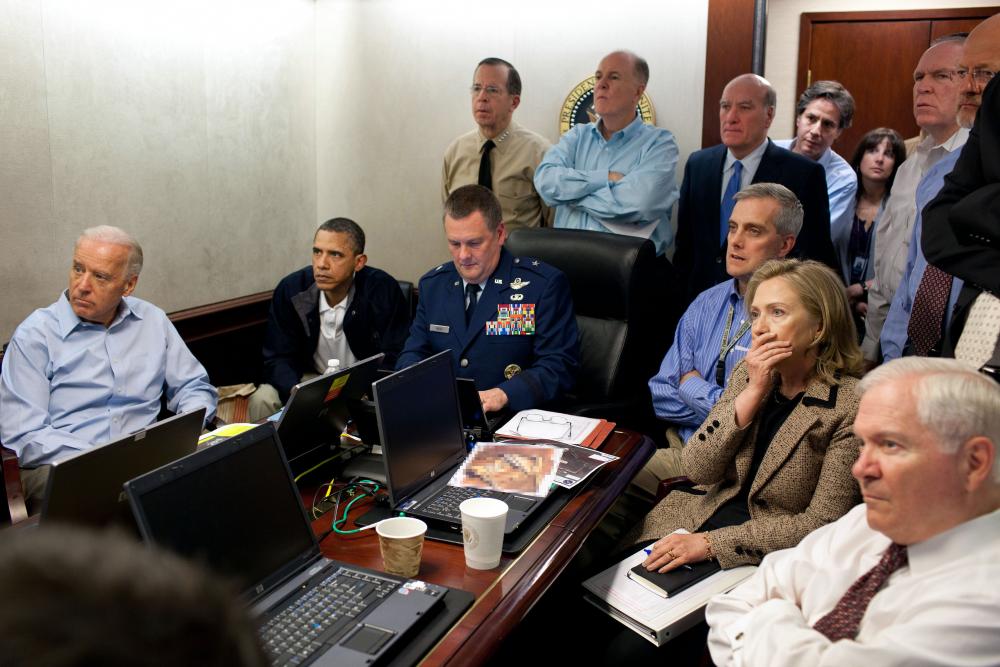
The Situation Room
For example, in America, economic policy is decided by the President, the Treasury Secretary, and the Chairman of the Fed. Military strategy is decided by the President and the Joint Chiefs of Staff. For important covert operations like the one that killed Osama bin Laden, decisions would be made by the President and a close group of advisers. In Malaysia all that is probably decided by Rosmah. Okay, I’m kidding, but I think you get my point – in both countries these kinds of decisions lie outside the ambit of the ordinary citizen, and that’s the way it works in most countries around the world that call themselves democratic.
Indeed, the ancient Greeks wouldn’t have regarded modern democracies as democracies at all. As Donald Kagan, former Sterling Professor of Classics and History at Yale, notes, ‘the Athenians would have been astonished at the claim of modern states to [the title of democracy]’. ‘To them an essential feature of democracy was the direct and full sovereignty of the majority of citizens. Government by elected representatives…appointment to important offices, unelected bureaucracies…terms for elective office of more than one year, all of these would have seemed clear and deadly enemies of what reasonable people might understand by democracy.’.
But what’s this mean? How did the fact that ancient Athens was a direct democracy affect decisions on public issues?
What this means, first of all, is that there were few secrets. Because everything had to be openly debated and discussed in the Athenian Assembly and then openly voted on, virtually everything became public knowledge. If, for example, the Athenians decided to send a fleet against the Spartans, the Spartans would know about it because they’d have spies within the Assembly who’d report to them as soon as a decision was reached.
This also means that a lot of important decisions, including military strategy, were made by people with no special expertise and with no access to special information, people who were sometimes ignorant and uneducated, people who could be easily influenced by demagogues into making rash choices.
This book here is the history of The Peloponnesian War. It chronicles the war between Athens (a democracy) and Sparta (an oligarchy) almost 2,500 years ago. It was written by Thucydides, an Athenian general involved in the war, and the man hailed as the father of scientific history. Though written as a history, it’s the most powerful argument against democracy I’ve ever come across and it’s helped my understanding of democracy immensely.
In this book Thucydides illustrates the weaknesses of democracy. He chronicles in excruciating detail how Athenian democracy degenerated into mobocracy. In his account of the Sicilian Expedition, he relates how the Athenian people voted in favor of invading Sicily, and forced a general who had strongly advocated against the invasion to command it. Later, when the invasion didn’t go well, they blamed the general for it even though it was their idea in the first place. When the general begged the Athenian people to let the troops come back home, the Athenians refused to listen and instead did the exact opposite: they voted to send even more troops and more ships to fight, throwing more resources into an unwinnable expedition. Finally, the Athenian army got surrounded by their enemies and was massacred, and that general was killed.
Historians of the war also relate the aftermath of the Battle of Arginusae.
In this battle, the Athenian fleet defeated the Spartan navy and won a great victory. The Athenian admirals then decided to concentrate on pursuing the retreating Spartan navy and only sent a smaller force to retrieve the survivors and the dead bodies from their ships that had been sunk in the battle. A storm came and the survivors and the dead bodies were lost. When the admirals got home, the Athenian citizens, stirred to anger by rabid politicians, sentenced all 8 of the admirals to death without due process. And so Athens lost 8 of its finest admirals. Without these admirals the Athenian fleet was crippled, and it was crushed by the Spartan navy within a year. The Spartans then captured the city of Athens and celebrated by tearing down its proud walls to the sound of flute music. Thus, Athens, the great beacon of democracy, was defeated and the Athenians were subjugated under a Spartan dictatorship.
The great lesson of the Peloponnesian War that Thucydides tries to convey is that democracy is a really bad idea. It’s not that Athens happened to be a democracy and happened to lose to oligarchic Sparta: Athens lost to Sparta because it was a democracy. It was because the Athenian people voted on every issue and no one was held accountable for their collective bad decisions. It was because the people shifted the blame to others instead of looking at themselves. It was because they ignored the counsel of generals who knew war and military strategy, choosing to substitute their own uninformed judgment. It was because they were easily riled by demagogues into persecuting their best men – the only men who could have saved them. In the end it was the people who were the architects of their own subjugation.
Thucydides wasn’t the only one who thought democracy was a terrible system. This view was shared by most of the great thinkers of that time. Many of the criticisms they made of democracy are still very valid today.
Socrates in Plato’s Republic ranked democracy as the second-worst kind of political system – just one step away from tyranny. He described democracies as anarchic cities where the people are slaves to their desires.
Indeed, Socrates would go on to personify the injustice a democracy was capable of. As the father of Western philosophy, he spent his time talking to his fellow Athenians and provoking them into questioning absolutely everything, including the gods, the way they lived their lives, and the Athenian democratic system itself. Eventually, his enemies got sick of him and had him charged with ‘corrupting the youth and disbelieving in the gods of the city’. He was found guilty by the democracy and put to death. In the process, he became history’s most famous martyr for free speech, and his death was a powerful indictment of democracy – demonstrating how it could kill people unjustly. Socrates died by drinking poison, but he held to his principles until the end, something that’s captured very vividly in this painting.
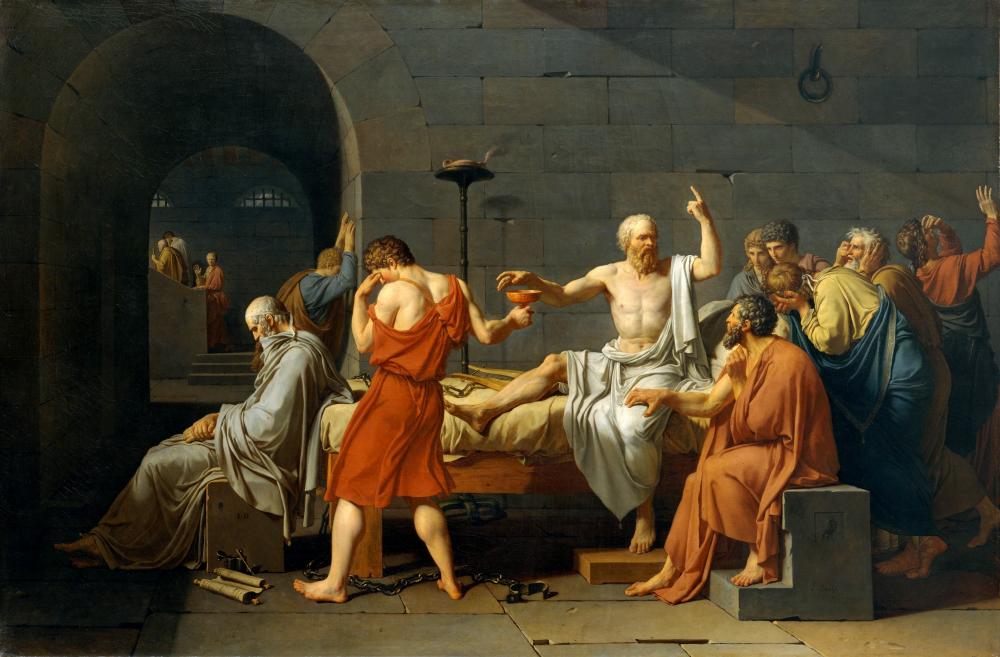
The Death of Socrates, by Jacques Louis-David
Likewise, Cleon, an Athenian politician, denounced democracy for creating a city of people who would support whoever was the best speaker, regardless of what that person was proposing. Here’s how Cleon scolded the Athenians for what he called their ‘addiction to argument’:
‘You like to be spectators of speeches…Good speakers advocating some future course of action are all the evidence you need to judge it possible…you are in thrall to the pleasure of listening, and you sit here more like spectators at the sophists’ displays than men taking decisions for their city.’
I think Cleon hits on an important weakness here. There were lots of factors leading to the rise of people like Mussolini and Hitler. But one important factor was that both of them were said to have been very good speakers. They could make lots of people listen to them and support their policies of fascism and brutal nationalism.
Hitler was said to have been such a great orator that he could be speaking to a crowd of thousands and many people in that crowd could feel like Hitler was speaking to him alone.
A few years ago I was at a Malaysian Student Leader’s Summit at the Intercontinental Hotel. There was a panel there with Khairy Jamaluddin on it. And you know, KJ is a very eloquent speaker, probably the most eloquent speaker in the whole of BN. At one point a student asked him a question: it was something about why the standard of living in Malaysia is so much lower than in Singapore. KJ replied ‘Why do you want to compare with Singapore? We should be kicking Singapore’s ass!’, and most of the hall cheered and applauded and that was that. The student’s question, an important one, was so easily deflected by a childish appeal to a sense of national pride. This was a reminder for me of how modern societies remain vulnerable to the influence of charismatic demagogues, to people who use passion to counter reason.
Probably the most fundamental criticism of democracy though, is this. Democracy is a system that treats people as equals. Rich or poor, smart or dumb, open or bigoted, educated or uneducated, every citizen gets an equal vote, even though, in many important respects, they’re not equal. ‘How can you have a system that treats people who are grossly unequal as equals?’ the ancients would ask, ‘That’s unjust, in fact, that’s crazy.’. You don’t hear that very often nowadays because it’s not politically correct, but it’s still an important question.
At times, it seems obvious that we’re all equals. But at other times it seems very obvious just how unequal we are.
Consider this – how should I put this delicately? – some people are really really stupid. Some people are really really ignorant and bigoted. You really want a system in which their votes count for the same as yours?
You really want a system in which the votes of Ibrahim Ali and the rest of his Perkasa idiots count for the same as yours?
Anyone remember that video of that Suara Wanita 1 Malaysia president trying to bully that student at UUM that went viral a few months back?

Well, the scary thing wasn’t that president woman, because there are always some crazy people here and there: it was the crowd of students, many of whom cheered and clapped in support even though her speech made virtually no sense at all, especially that bit about chickens and sharks also having problems. Well that wasn’t just a small group of students – there were hundreds of them. You really want a system where each of their votes counts for the same as yours?
John T. Wenders, former Professor of Economics at the University of Idaho, described democracy as ‘Two coyotes and a lamb voting on what to have for lunch’. Ultimately, a big part of whether you support democracy or not depends on the confidence you have in your fellow citizens. Confidence in their knowledge and intelligence (at least to a minimum level), and most of all, confidence in their values and their basic human decency. If you view most of your fellow citizens as coyotes, you’re unlikely to be too hot about democracy.
Well, turns out, many people throughout history were convinced by those arguments against democracy, and so after ancient Greece was conquered by Philip of Macedon (the father of Alexander the Great) in 337 BC, democracy largely disappeared from the Western world until the birth of the American republic around 1789, more than 2,000 years later. Although there are significant differences between democracy in early America and present day democracy (for example only a minority held the voting franchise), this was the prototype.
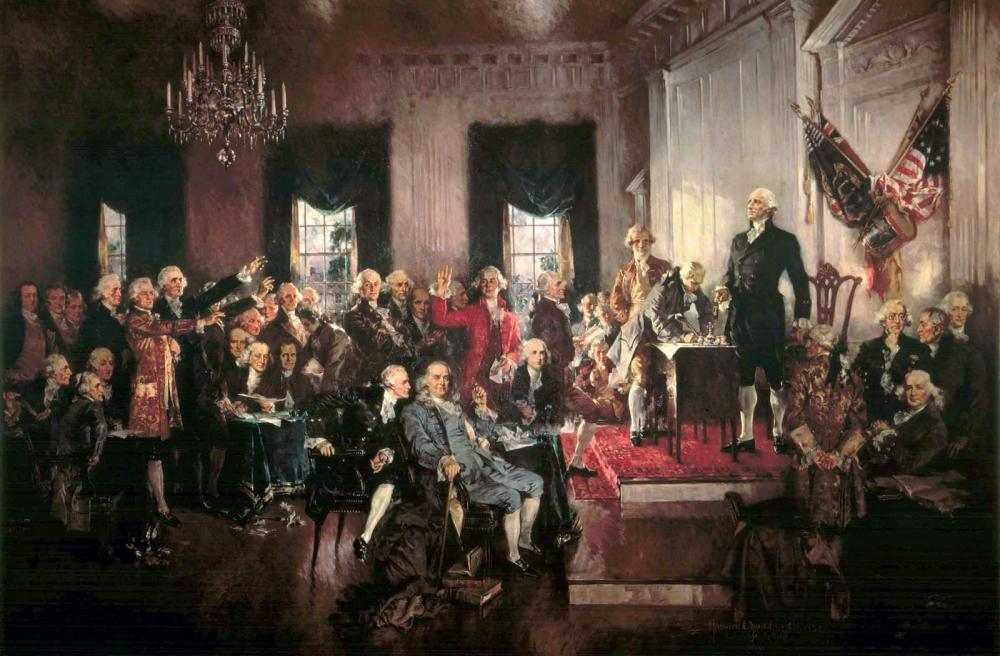
Scene at the Signing of the Constitution of the United States, by Howard Chandler Christy
Thus began the great American experiment with democracy. After fleeing persecution and bigotry in Europe, and having to fight for their independence from the British Empire, the last thing the Americans wanted was rule by another tyrant.
But here’s the thing: America’s founding fathers were great readers of the classics. They had read Thucydides and Plato and Thomas Hobbes – all those great thinkers who wrote that democracy was unsustainable because people are too stupid, too violent, too selfish. The founding fathers didn’t ignore the weaknesses of democracy, they learned from them, and they used this knowledge to design a system that was democratic in nature, but which guarded against the weaknesses of the Athenian direct democracy.
What they created wasn’t just a democracy, it was something different: it was a republic. It was rule by the people, but it had special checks against the tyranny of the majority, because they acknowledged that the majority could sometimes be wrong. They chose a system of representative democracy, in which elected representatives (who devoted their time to understanding issues and were privy to secret information) made decisions on behalf of the people, and were accountable to them.
They drew upon the Roman and British traditions, as well as the writings of the French political philosopher Montesquieu, and stressed a separation of powers into a legislature, an executive, and a judiciary, and gave the Supreme Court great powers to check the other two branches. In the Bill of Rights, they put liberty at the heart of their law and enshrined freedom of expression, freedom of the press, due process, and private property – all these safeguarded minority rights against the majority. ‘The patriots of 1776 did not fight to replace the tyranny of a king with the privileges of a few’, said President Obama in his second inaugural address, ‘or the rule of a mob. They gave to us a republic’.
These ideas went on to influence the development of democracy in England, and in other parts of the world, leading to the democratic systems we have now. When the Universal Declaration of Human Rights was drawn up in 1948, it drew on these ideas too. It’s common to think of democracy and human rights as going hand in hand, but they don’t really.
Some of you might remember an incident across the causeway 2 months ago when Zainudin Nordin, a Member of Parliament in Singapore, posted up a quote from a book by the author Terry Goodkind pointing out that ‘Gang rape, after all, is democracy in action.’. He came under a lot of flak for doing that by politically-correct Singaporeans, but he was largely correct.

The unfortunate Zainudin Nordin
If ‘democracy’ just means majority rule, well, that means that whatever the majority decides can and should be done. If the majority wants to rape someone then fine. If the majority wants to persecute someone for speaking his mind then fine. If the majority wants to ban minorities from using the word ‘Allah’, then that’s fine too.
But human rights opposes this. It draws a line in the sand. It says there are some things you cannot do. It says that some rights are so precious and so fundamental that they should be protected even if the majority decides to infringe them.
It’s no coincidence that the Universal Declaration of Human Rights was drawn up in the bloody aftermath of WWII and the Holocaust, in which millions of people, many of them minorities, were massacred. It was because the drafters of the Declaration realized that, whilst democracy was important, so too were specially-protected human rights, and in modern democracies there’s a calculated tension between the two.
And so when we use the term ‘democracy’ today, it doesn’t just mean ‘majority rule’. It has become something far more complex. It means majority rule, but majority rule through representation, and with checks and protections for fundamental rights in place. It is comprised of different, and often conflicting, elements, and it is, I think, a better system of government because of this.
***
But how does democracy fare in the Malaysian context? How does it interact with political Islam? How does it function in a country as religiously and ethnically diverse (some would say ‘religiously and ethnically divided’) as Malaysia.
In this book, World On Fire: How Exporting Free Market Democracy Breeds Ethnic Hatred and Global Instability, Yale law professor Amy Chua helps to answer those questions. This is a disturbing and iconoclastic book, a work of rigorous scholarship, and it’s contributed a great deal to my understanding of democracy in the region.
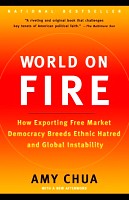
In short, the prognosis is worrying. Professor Chua observes that rapid democratization can be very dangerous in countries with market-dominant minorities.
What do you think she’s talking about here when she says ‘market-dominant minorities’?
She’s talking about the Chinese in Malaysia, who are a minority, but who control a disproportionately large portion of the wealth in the country. And this isn’t something you find only in Malaysia, you also find this with Chinese diasporas in Indonesia, Thailand, Burma, and the Philippines.
Increasing democracy in these countries can be dangerous, because the majority ethnic group, the Malays in the case of Malaysia, may feel resentful at the disproportionate wealth of the Chinese minority. Their different ethnicities will make this worse, because it’s not, for example, the same as a poor white guy looking at a rich white guy in America. In that scenario, that poor white guy may think that he’s not so different from the rich white guy. He may think that maybe one day if he works hard and works smart he can be just like him. In the Malaysian context, it’s a bit harder. The poor Malay may look at the rich Chinese and think that they’re very different. They look different, their skin is a different color, they have different customs and religions, they might not even speak the same language. He may well conclude that no matter how hard or smart he works, he’ll never be just like that rich Chinese. He may view the other ethnicity as alien.
Where can this feeling of resentment lead? Sure, most of the Chinese may deserve to hold that large share of wealth: they may have worked hard and smart for it, they may have earned it with their initiative and ingenuity, and their country may have benefitted a great deal from their enterprise.
But, as we saw even from the time of Thucydides, human nature is not always fair. It can be selfish and violent and shortsighted, and when members of an ethnic majority look at the wealth of a rich minority that they feel alienated from, there can be the temptation to take it all away. They might just decide, hey, since this country is democratic and we, the ethnic majority, comprise most of the votes, why don’t we just pressure our politicians to take all that minority’s stuff and redistribute it to us instead? In this scenario, the majoritarian side of democracy becomes favored at the expense of checks and human rights. Combine this with political Islam, in which an extremist form of Islam is exploited by demagogues to justify persecuting those who are different, and you have a recipe for great atrocities.
So what’s the solution to this problem? Well, some prominent Chinese families decided to oppose democracy, developing a symbiotic relationship with local despots: the despots kept the majority at bay and in return the families provided (usually financial) support. Chinese elites in the Philippines propped-up the kleptocratic Marcos regime. Chinese tycoons like Bob Hasan and Liem Sioe Liong helped finance the despotic Suharto regime in Indonesia in exchange for special favors and government contracts.
You see something similar in Malaysia with the support the ruling party enjoys from Chinese tycoons like Francis Yeoh of YTL and Vincent Tan of Berjaya. Indeed, this can sometimes extend to direct complicity in repression. Some of you might remember that The Sun newspaper was once quite vocal and objective compared to other Malaysian papers. However, when it was bought over by Berjaya it became much more subdued and biased towards the ruling party.
Professor Amy Chua’s solution is to endorse schemes like Malaysia’s NEP, arguing that its affirmative action policies reduce resentment by leveling the wealth disparity.
To an extent I can see where they’re coming from. These solutions aim to reduce the discrepancy between political and economic power.
So are these people right? Should I, as a Chinese Malaysian, oppose democracy in Malaysia and throw my support behind the authoritarian BN government? Should I endorse the NEP? What do you think? Tough call, huh?
By the way, there are parallels between this dilemma and the Arab Spring. In December 2010, the self-immolation of a young Tunisian man triggered a wave of democratic protests across the Arab world, and revolutions in Tunisia, Egypt, Libya, and Syria. And the US government, which had been calling for democratization for years, suddenly had no idea what to do, as was seen from its confused reaction. The Americans were apprehensive because they had been rather deplorably propping-up those Middle Eastern dictators for decades, and now, with this rapid democratization, they were afraid of what the Arab people might vote for, and feared the rise of Islamic extremism.
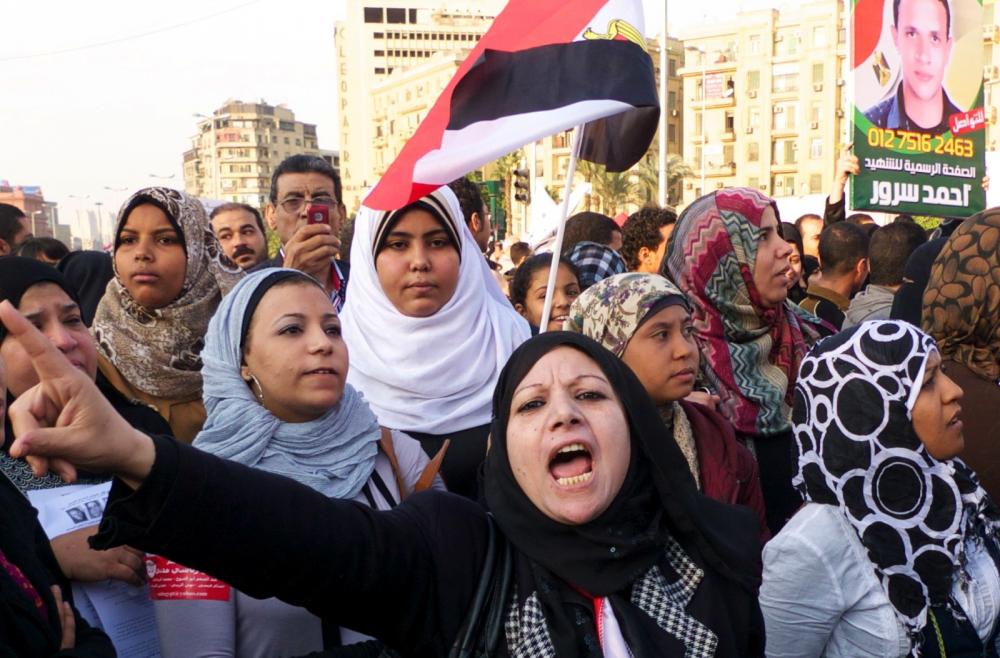
Protestors in Egypt’s Tahrir Square
Well my answer to the Malaysian dilemma is this. The thing about supporting authoritarianism and policies like the NEP in Malaysia is that they aren’t really solutions because they’re not sustainable; they don’t solve the problem, at most they only delay the reckoning.
The NEP may seem to ease the resentment of the Malays for a while, but what we find in Malaysia is that over time these affirmative action policies create a ‘crutch-mentality’ among many Malays; many have come to rely on the government for handouts instead of learning to compete, and so grow increasingly incapable of improving their economic status, leading to greater frustration in the long-term.
Supporting an authoritarian strong-man may seem to keep the threat of violence at bay, but it doesn’t go away: it simmers under the surface. Meanwhile, an authoritarian government finds it easier to get away with corruption and cronyism and squanders public money instead of using it to improve the country. The BN government also deliberately stokes racial and religious tension to rally support, whilst often prohibiting reasoned discussion on important issues. It severely limits civil society by restricting peaceful protests, gatherings, public forums, and independent media, such that for many years the only outlet was Islamic extremism. The long-term effect of this is that poverty and racial and religious tensions get even worse. The threat of violence may be delayed for a while, but you pay heavily for this borrowed time. The Americans tried this bargain by propping-up dictators in the Middle East, and extremism in the region rose. Some Chinese-Indonesian tycoons tried this for decades by propping-up Suharto. They thought with their money they could control Suharto, and Suharto could control the resentment of the pribumi Indonesians. When the racial riots broke out in 1998, they found out just how in control they really were.

Indonesian pribumi rioters burn a portrait of Liem Sioe Liong and his wife pillaged from his house during the 1998 riots
I had the pleasure of talking to Professor Amy Chua when I was a student at Yale, and during our conversation I put all that to her. She said she hadn’t realized those complications. I asked her if she could think of a more sustainable solution to this problem. Professor Chua is an exceptionally careful and meticulous scholar: she said she didn’t have an answer, and that she would need to do a lot more research before she could come up with one.
I think that democracy is difficult and messy and complicated, but the alternatives, at least in Malaysia, are unsustainable. I think Winston Churchill was largely right when he said ‘Democracy is the worst form of government, except for all those other forms that have been tried’.
I think our best hope lies in a country that’s more democratic, but which also has strong protections for fundamental rights. It lies in a country where those from poorer backgrounds are given help (primarily through education) to compete with others, in a way that empowers them instead of coddling them. It lies in a country where people are free to debate and discuss the most important issues and work out solutions instead of burying them and leaving them to fester. Such a country will require the richer Chinese minority to actively engage with national problems, to realize that they have a stake in the country too, and to resist throwing money at problems to try to make them go away. There’s a Chinese saying that ‘nothing is a problem if money can solve it’. It’s sometimes true: money can certainly get you out of certain difficulties. But to take it to an extreme, and to think that money can be substituted for the hard work of dialogue and engagement and nation-building, is a grave mistake.
Aristotle wrote that if you assume a wise and benevolent government, a dictatorship is better than a democracy. I think he’s right.
Throughout history however, it seems an immutable rule that ‘absolute power corrupts absolutely’, that those with too much power almost always abuse it. Because of this there are very few governments that are wise and benevolent, and certainly very few that, upon attaining overwhelming power, remain wise and benevolent for very long.
Aristotle, empiricist that he was, recognized this. If you assume a wise and benevolent government, he wrote, a dictatorship is better than a democracy. But a corrupted dictatorship is worse than a corrupted democracy. And since actual governments tend towards corruption and abuse, in reality it is democracy that ends up being better. In this way Aristotle arrived at a qualified defense of democracy.
Ultimately, I support democracy in most cases because I share this deep mistrust of people who are given too much power over others, and modern democracy has the most effective checks against such power.
There are other reasons too. The ancients warned that democracy can descend into mobocracy; instigated by charismatic leaders, the people can make terrible decisions and persecute minorities. All that remains true.
However, it’s also true that, whilst Athens lost to Sparta in The Peloponnesian War, modern representative democracies have tended to win against dictatorships when they fought. It’s also true that the rights of minorities have been better protected under modern democracies than under authoritarian regimes. And it’s also true that democracies tend to be more prosperous and better at encouraging creativity and innovation.
Modern democracy is a concept perpetually in tension with itself, with its own conflicting elements. It will remain a sound system of government so long as people remember that it’s supposed to be that way.
Thank you.
(MTadmin – footnotes were left out due to formatting problems)

